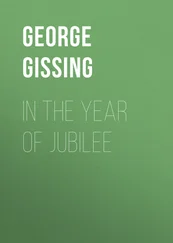George Gissing - The Whirlpool
Здесь есть возможность читать онлайн «George Gissing - The Whirlpool» — ознакомительный отрывок электронной книги совершенно бесплатно, а после прочтения отрывка купить полную версию. В некоторых случаях можно слушать аудио, скачать через торрент в формате fb2 и присутствует краткое содержание. Жанр: foreign_prose, literature_19, foreign_antique, на английском языке. Описание произведения, (предисловие) а так же отзывы посетителей доступны на портале библиотеки ЛибКат.
- Название:The Whirlpool
- Автор:
- Жанр:
- Год:неизвестен
- ISBN:нет данных
- Рейтинг книги:4 / 5. Голосов: 1
-
Избранное:Добавить в избранное
- Отзывы:
-
Ваша оценка:
- 80
- 1
- 2
- 3
- 4
- 5
The Whirlpool: краткое содержание, описание и аннотация
Предлагаем к чтению аннотацию, описание, краткое содержание или предисловие (зависит от того, что написал сам автор книги «The Whirlpool»). Если вы не нашли необходимую информацию о книге — напишите в комментариях, мы постараемся отыскать её.
The Whirlpool — читать онлайн ознакомительный отрывок
Ниже представлен текст книги, разбитый по страницам. Система сохранения места последней прочитанной страницы, позволяет с удобством читать онлайн бесплатно книгу «The Whirlpool», без необходимости каждый раз заново искать на чём Вы остановились. Поставьте закладку, и сможете в любой момент перейти на страницу, на которой закончили чтение.
Интервал:
Закладка:
In April she gained Mrs. Frothingham's consent to her removal from Leipzig to Munich. A German girl with whom she had made friends was going to Munich to study art. For reasons, vague even to herself (so ran her letters to Mrs. Frothingham), she could not 'settle' at Leipzig. The climate did not seem to suit her. She had suffered from bad colds, and, in short, was doing no good. At Munich lived an admirable violinist, a friend of Herr Wilenski's, who would be of great use to her. 'In short, dear Mamma, doesn't it seem to you rather humiliating that at the age of four-and-twenty I should be begging for permission to go here and there, do this or that? I know all your anxieties about me, and I am very grateful, and I feel ashamed to be living at your expense, but really I must go about making a career for myself in my own way.' Mrs. Frothingham yielded, and Alma took lodgings in Munich together with her German friend.
English newspapers were now reporting the trial of the directors of the Britannia Company, for to this pass had things come. The revelations of the law-court satisfied public curiosity, and excited indignant clamour. Alma read, and tried to view the proceedings as one for whom they had no personal concern; but her sky darkened, her heart grew heavy. The name of Bennet Frothingham stood for criminal recklessness, for huge rascality; it would be so for years to come. She had no courage to take up her violin; the sound of music grew hateful to her, as if mocking at her ruined ambition.
Three months had passed since she received her one and only letter from Honolulu; two months since she had written to Sibyl. On a blue day of spring, when despondency lowered upon her, and all occupation, all amusements seemed a burden, she was driven to address her friend on the other side of the world, to send a cry of pain and hopelessness to the dream-island of the Pacific.
'What is the use of working at music? The simple truth is, that since I left England I have given it up. I am living here on false pretences; I shall never care to play the violin again. What sort of a reception could I expect from an English audience? If I took another name, of course it would get known who I was, and people would just come to stare at me—pleasant thought! And I have utterly lost confidence in myself. The difficulties are great, even where there is great talent, and I feel I have nothing of the kind. I might toil for years, and should do no good. I feel I am not an artist—I am beaten and disgraced. There's nothing left but to cry and be miserable, like any other girl who has lost her money, her hopes, everything. Why don't you write to me? If you wait till you get this, it will be six or seven weeks before I could possibly hear. And a letter from you would do me so much good.'
Some one knocked at her door. She called ' Herein !' and there appeared a little boy, the child of her landlady, who sometimes ran errands for her. He said that a gentleman was asking to see her.
' Ein Deutscher ?'
' Nein. Ein Englander, glaub'ich, und ein schnurriges Deutsch ist's, das er verbricht !'
Alma started up, shut her unfinished letter in the blotting-case, and looked anxiously about the room.
'What is his name? Ask him to give you his name.'
The youngster came back with a card, and Alma was astonished to read the name of 'Mr. Felix Dymes'. Why, she had all but forgotten the man's existence. How came he here? What right had he to call? And yet she was glad—nay, delighted. Happily, she had the sitting-room (shared with her art-studying friend) to herself this morning.
'Bring him up here,' she said to the boy hurriedly, 'and ask him to wait a minute for me.'
And she escaped to make a rapid change of dress. For Alma was not like Sibyl Carnaby in perpetual regard for personal finish; she dressed carelessly, save when the occasion demanded pains; she liked the ease of gowns and slippers, of loose hair and free throat; and this taste had grown upon her during the past months. But she did not keep Mr. Dymes waiting very long, and on her entrance he gazed at her with very frank admiration. Frank, too, was his greeting—that of a very old and intimate friend, rather than of a drawing-room acquaintance. He came straight from England, he said; a spring holiday, warranted by the success of his song 'Margot', which the tenor, Topham, had sung at St James's Hall. A few days ago he had happened to see Miss Leach, who gave him Miss Frothingham's address, and he could not deny himself the pleasure of calling. Chatting thus, he made himself comfortable in a chair, and Alma sat over against him. The man was loud, conceited, vulgar; but, after all, he composed very sweet music, which promised to take the public ear; and he brought with him a waft from the happiness of old days; and how could one expect small proprieties of a bohemian, an artist? Alma began to talk eagerly, joyously.
'And what are you doing, Miss Frothingham?'
'Oh, fiddling a little. But I haven't been very well.'
'I can see that. Yet in another sense you look a better than ever.'
He began to hum an air, glancing round the room.
'You haven't a piano. Just listen to this; how do you think it will do?' He hummed through a complete melody. 'Came into my head last night. Wants rather sentimental words—the kind of thing that goes down with the British public. Rather a good air, don't you think?'
Felix Dymes had two manners of conversation. In a company at all ceremonious, and when it behoved him to make an impression, he talked as the artist and the expert in music, with many German phrases, which he pronounced badly, to fill up the gaps in his knowledge. His familiar stream of talk was very different: it discarded affectation, and had a directness, a vigour, which never left one in doubt as to his actual views of life. How melody of any kind could issue from a nature so manifestly ignoble might puzzle the idealist. Alma, who had known a good many musical people, was not troubled by this difficulty; in her present mood, she submitted to the arrogance of success, and felt a pleasure, an encouragement, in Dymes's bluff camaraderie .
'Let me try to catch it on the violin,' she said when, with nodding head and waving arm, he had hummed again through his composition.
She succeeded in doing so, and Dymes raised his humming to a sentimental roar, and was vastly pleased with himself.
'I like to see you in a place like this,' he said. 'Looks more business-like—as if you really meant to do something. Do you live here alone?'
'With a friend.'
Something peculiar in Dymes's glance caused her to add, 'A German girl, an art student.' Whereat the musician nodded and smiled.
'And what's your idea? Come now, let's talk about it. I wonder whether I could be of any use to you—awfully glad if I could.'
Alma was abashed, stammered her vague projects, and reddened under the man's observant eye.
'Look here,' he cried, with his charming informality, 'didn't you use to sing? Somebody told me you had a pretty good voice.'
'Oh, that was long ago.'
'I wish you'd let me hear you.'
'No, no! I don't sing at all.'
'Pity, if it's true. I want to write a serio-comic opera, a new sort of thing, and it struck me you were just cut out for that kind of singing. You have the face and the—you know—the refinement; sort of thing not easy to find. It's a poor chance, I'm afraid, coming out as a violinist.'
Half inclined to resent his impertinence, yet subdued by the practical tone and air of superior knowledge, Alma kept a grave face. Dymes, crossing his legs, went on with talk of projects he had in view, all intended to be lucrative. He had capital; nothing great, just a comfortable sum which he was bent on using to the best advantage. His songs would presently be bringing him in a few hundreds a year—so he declared—and his idea of life was to get as much enjoyment as possible without working over-hard for it. The conversation lasted for a couple of hours, Dymes growing even more genial and confidential, his eyes seldom moving from Alma's face.
Читать дальшеИнтервал:
Закладка:
Похожие книги на «The Whirlpool»
Представляем Вашему вниманию похожие книги на «The Whirlpool» списком для выбора. Мы отобрали схожую по названию и смыслу литературу в надежде предоставить читателям больше вариантов отыскать новые, интересные, ещё непрочитанные произведения.
Обсуждение, отзывы о книге «The Whirlpool» и просто собственные мнения читателей. Оставьте ваши комментарии, напишите, что Вы думаете о произведении, его смысле или главных героях. Укажите что конкретно понравилось, а что нет, и почему Вы так считаете.












